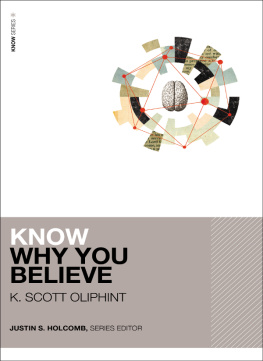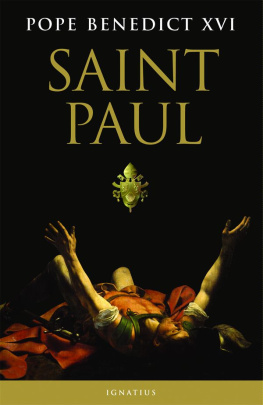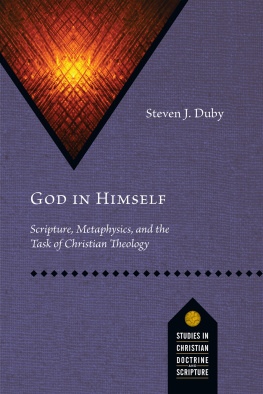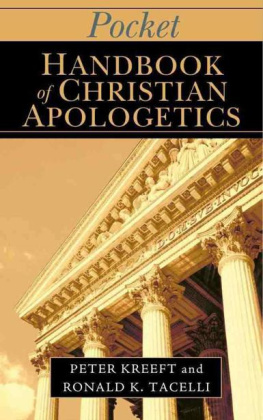The extent to which a belief in universal salvation was held and taught in the early centuries of the Christian church has often been under-estimated. As Professor Ramelli shows, this belief did not originate with Origen, the best known patristic proponent of it, but most of those who subsequently held to it were influenced by Origen and the particular shape that he gave to this hope of the final restoration of all Gods rational creatures, including the importance of free will, which God will not suppress, and the purifying and restorative character of post-mortem punishment. Professor Ramelli shows that this hope cannot be dismissed as no more than an intrusion into the Christian tradition from Platonic philosophy. These theologians rooted their teaching in exegesis of Scripture and embraced a Christocentric vision of the universe and Gods purpose for it.
Here we are taken on an enlightening tour of the relevant writings of the major figures and also some minor figures. Some are well known, others very little known. Some are surprising. Ramelli is thoroughly acquainted with all of the texts and the relevant secondary literature. A very valuable feature is the extensive quotations from all the writers in question, given in her own translations. Moreover, Professor Ramelli provides for us in each case with a full profile of the various factors that contribute to each writers understanding of the doctrine of universal restoration. Given the extent and diversity of the literature this is a major achievementand a unique one toofor which anyone with an interest in this important subject will be heartily grateful. At a time when the popularity of belief in universal salvation seems to be increasing, this book will be an important resource both for learning about the form that belief actually took in a major theological tradition of the early centuries and for engaging with the arguments of the key theologians who taught it.
Preface
No being will remain outside the number of the saved.
(St. Gregory of Nyssa, On Cor : , Downing, 21)
Laudetur Iesus Christus,
semper laudetur.
May Jesus Christ be praised,
May He always be praised.
The present book addresses a general learned readership, pastors, students (graduates and undergraduates), and other interested Christians. For all references to original texts, often in extensive quotations, and to scholarship regarding the sections from the New Testament to John the Scot Eriugena (approximately the first Christian millennium), as well as a much more detailed treatment, I refer to my The Christian Doctrine of Apokatastasis: A Critical Assessment from the New Testament to Eriugena ,
It will be followed in due course, God willing, by two other scholarly monographs: one on non-Christian and pre-Christian philosophical concepts of apokatastasis , from ancient philosophy to late antique Platonism (Proclus, Damascius), and another on the political, theological, pastoral, ecclesiastical, social, historical, and even linguistic causes for the rejection of the doctrine of apokatastasis or universal restoration, in late antiquity, by the Church of the Empiremainly under the influence of Justinian in the East and of Augustine in the West.
In addition to my monograph on apokatastasis, see Brian Daley, The Hope of the Early Church: A Handbook of Patristic Eschatology ,
For the Christian doctrine of universal salvation in more recent times, besides the present volume, which addresses also the span of time from Eriugena to Meister Eckhart and Julian of Norwich (absent from The Christian Doctrine of Apokatastasis ), I refer readers to Robin Parry and Christopher Partridge (eds.), Universal Salvation? The Current Debate , I look forward to David Bentley Harts constructive book on universalism (Yale, 2019).
In the present book I do not merely summarize the content of The Christian Doctrine of Apokatastasis , but also add many new sections that were absent from the larger volume, e.g., on annihilationism, some apocrypha, Hilary of Poitiers, Basil of Caesarea, Macarius of Magnesia, Aphrahat, Barsanuphius, Theophylact, Meister Eckhart, the appendix on the terminology of eternity, and all the last section from Eriugena to Julian of Norwich. Furthermore, I have added various new texts, proofs, and arguments concerning a number of theologiansfrom Clement and Eusebius to Basil of Caesarea, from Ambrose and Marius Victorinus to Maximus the Confessor, from Gregory of Nazianzus and Diodore of Tarsus to Titus of Basra and Eriugena, and morewhich were not included in the 2013 monograph. So I hope that even those who have read The Christian Doctrine of Apokatastasis will find new material here that will be of interest.
In collaboration with David Konstan, I wrote a monograph some ten years ago about the Greek words ainios and aidios , entitled Terms for Eternity . Given the significance of the word ainios in discussions about universal salvation in the Bible and in the early church that earlier study has predictably proven important in the preparation of my Apokatastasis monograph . Given this importance, the main findings of that extensive research are briefly summarized in an Appendix at the end of this book.
This book is the first of a projected series of three books on the doctrine of universal salvation. In the second volume, A Larger Hope? From the Reformation to the Nineteenth Century , Robin Parry, with some contributions from me, will pick up the story in its mainly Protestant streams. The third volume, which will be co-authored, shall trace the significant developments in the shape and fortunes of the idea in the twentieth and twenty-first centuries. We hope that these books taken together will provide a helpful and reliable resource for those wishing to explore an often-forgotten stream in the history of the Christian tradition.











